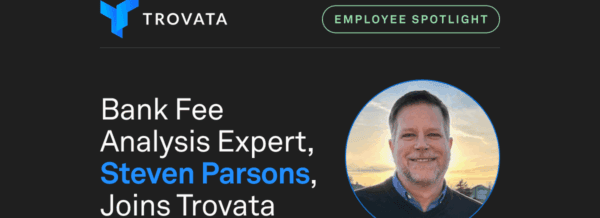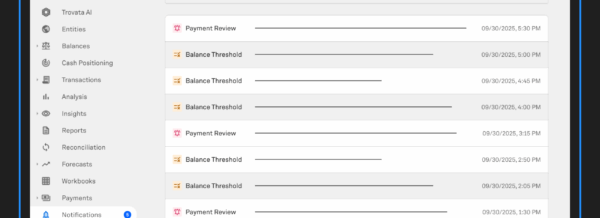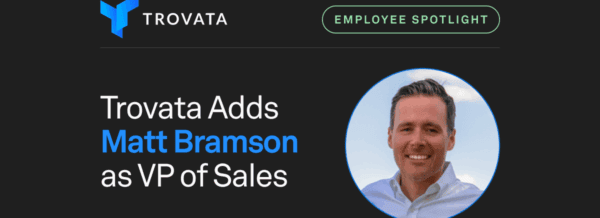Meet Courtney Bell, a Virginia native, now working out of our San Francisco office. Courtney attended Virginia Commonwealth University, earning a dual degree in business entrepreneurship and information systems. Originally hoping to open up a bakery, Courtney grew into a successful Software Engineer with a passion for technology.
Courtney sat down with us to discuss her STEM journey, career in FinTech, and her advice for women in technology.

Starting With College – How Did You Choose Your Majors?
I started with the small business side of things. My first dream was to open a bakery. But around my sophomore year, I realized it’s not quite that simple. My dad was in tech, and my brother was doing information systems at the time over at James Madison University. They inspired me to add the information systems major.
What Does the Information Systems Major Cover?
Information systems is a broad degree that covers half business and half computer science. They have database classes, coding classes, and a bunch of business classes.
My first programming class was C#, and I really liked it. It just made sense to me. There was only one other programming class that I could take in my major, C++. I took that, and I wouldn’t say I liked it as much, but I still found myself drawn to the whole concept of programming.
I became a C# tutor for the college, and that was a great experience. It was fun, and it highlighted what I didn’t know.
Tutoring forced me to learn fast because I was like, “Oh, wow! I have to help them know exactly how to do this.” That was all the programming I did in school, but it was my favorite part of my major, so I decided to pursue that after college.
Was the Transition from Business to Coding Difficult?
That’s a good question because it is so different, right? Information systems was a perfect base because it’s so broad. After all, you get a little bit of databases, a little bit of logic, and a little bit of programming. It helps you better understand what you like and what you don’t like by exposing you to a broad spectrum of technology. I think that is what made the transition easier. Plus, my C# teacher was outstanding. They went slow and made C# fun and easy to pick up.
How Did You Make Your Way Into FinTech?
I didn’t do any internships in college. Instead, I worked on some funded grants. We built computers using free software, like Ubuntu. Basically, we set up an operating system on a USB drive so students could bring their `computer` with them anywhere and boot off any device. We then brought them to Haiti, distributed them to schools, and showed people how to use them.
After graduating from VCU, I started working at Capital One. I heard about the role at Capital One through a friend and was initially excited because they had an office in San Francisco, and I really wanted to live there. Once I actually started working, I fell in love with the technology development program and the projects I was working on.
If you’re at the beginning of your career, a technology development program (TDP) is a great place to start. They vary between companies, but Capital One’s TDP is two years. You do the first year on one team or with one technology, and then you get to switch your second year to something else. The program provided me with a great exposure to opportunities available in tech and is a great way to cultivate new skills and discover passions.
Any Resources That Have Helped in Your Career?
I would say try everything and say “yes” to as much as you can while still valuing your time. When I first started, I had no idea what I wanted to do.
Being open to opportunities allowed me to find my footing and discover what I was passionate about. I said “yes” to just about everything that came up. I said “yes” to Capital One. At Capital One, there was a TDP program, which was an excellent resource for me at the time.
I’ve honestly liked everything I’ve worked on.
“This say ‘yes’ attitude has gotten me into many projects that I would never have tried or even known I would like, including my job at Trovata. I would never have thought I wanted to work on the back-end. I always thought I was a front-end person. I honestly love this team. I love working here, and I don’t want to switch back to front-end development anymore. Saying ‘yes’ to things has always worked out for me.”
Courtney Bell
What Does an Average Day for You Look Like at Trovata?
It’s mostly heads-down coding, but that’s a part of building and creating a solid foundation. Right now, I’m working on a direct connection to a new bank. The projects and tasks I’m assigned vary from week to week. I’d say I probably get a new project about every one or two weeks. We move pretty fast here.
The back-end covers everything under the hood, such as the heavy computing, and it’s where you get all the data. For example, when you go to a website for classes, the program pulls a list of classes from an API which has put all that data together for you. That’s all back-end programming. Then the front-end team develops a way to make the data presentable and easy to use.
What Are the Things You Like to Do Most in Your Role?
The things I like to do are boring to most people. I really enjoy writing tests and making things more reusable. Usability and versatility were very important to my past managers, so I ended up enjoying those kinds of projects because I worked on them all the time.
Any Advice for Women Considering a Career in the Tech Industry?
I’ll repeat, try everything, even the stuff you don’t think will interest you. Try to build a broad foundation for yourself. Otherwise, I’d say, don’t worry too much about making mistakes. This is advice I am still learning to take myself. In this field, part of your job is learning. Remember that even senior team members will have bug fixes, and it’s not a big deal. Instead of stressing about every bug, look at them all like learning opportunities and chances to further develop your skills.
I guess this also goes hand in hand, but if you need help, just ask for it. If you don’t understand something, ask for clarification. Collaborate with your teammates, ask them to review your code or share tips. You came up with a solution to a problem, but there might be an even better solution or one that is more efficient.
The tech industry encompasses many different roles, which is great because it provides the opportunity to find a niche you are really passionate about. But, this can also make it difficult to know where to start. Do your research, leverage your network, and then pick a starting point. Go into that role knowing that you will continue to grow and learn from there. It is like learning a new language. The first day, you know a very little of the language, and then every day, you add new vocabulary. Eventually, you feel comfortable enough to pick up something else.
Do You Have Any Traits That Helped You Excel as a Software Engineer?
I would say my love for learning and tenacity. In my role, not every problem has an existing solution. Sometimes you have to develop the answer yourself. Even if you feel like you won’t figure it out or like you can’t figure it out, keep going.
That tenacity and determination to overcome problems is important, especially in tech. There are so many bugs that you will think to yourself, “I have no idea how to fix this.” You must keep going, trying to find the right piece of the puzzle, and eventually, you will find your solution.
Do You Have a Moment in Your Career You’re Most Proud Of?
There were so many times where I thought I wouldn’t be able to figure a problem out. I’ve stayed up all night before trying to develop a solution or fix a bug. That’s happened multiple times in my career.
“Working through problems that seem impossible helps build confidence. That’s what I’m proudest of. I don’t remember exactly what project it was, but I remember the sense of accomplishment that I felt after investing hours of work.”
Courtney Bell
Do You Have a Story From Working at Trovata That Encapsulates Your Experience Here?
Despite being in a remote environment, I think the main thing I like about Trovata is that we all come from different tech backgrounds. I didn’t come from a back-end background and neither did a handful of people on my team. I feel like that alone speaks volumes about the company because it shows we are all here to learn. From engineering to marketing, the most valued skills are willingness to learn, adaptability and having a positive and collaborative attitude.
Another great thing about Trovata is that everyone is just so kind. It is a very tight-knit group, and even the people I don’t know are easy to talk to. Everybody is really friendly and supportive. That speaks to how great of a connection everybody has and how great of a company Trovata is.
Enjoyed this post? Make sure to subscribe to the Trovata newsletter!



